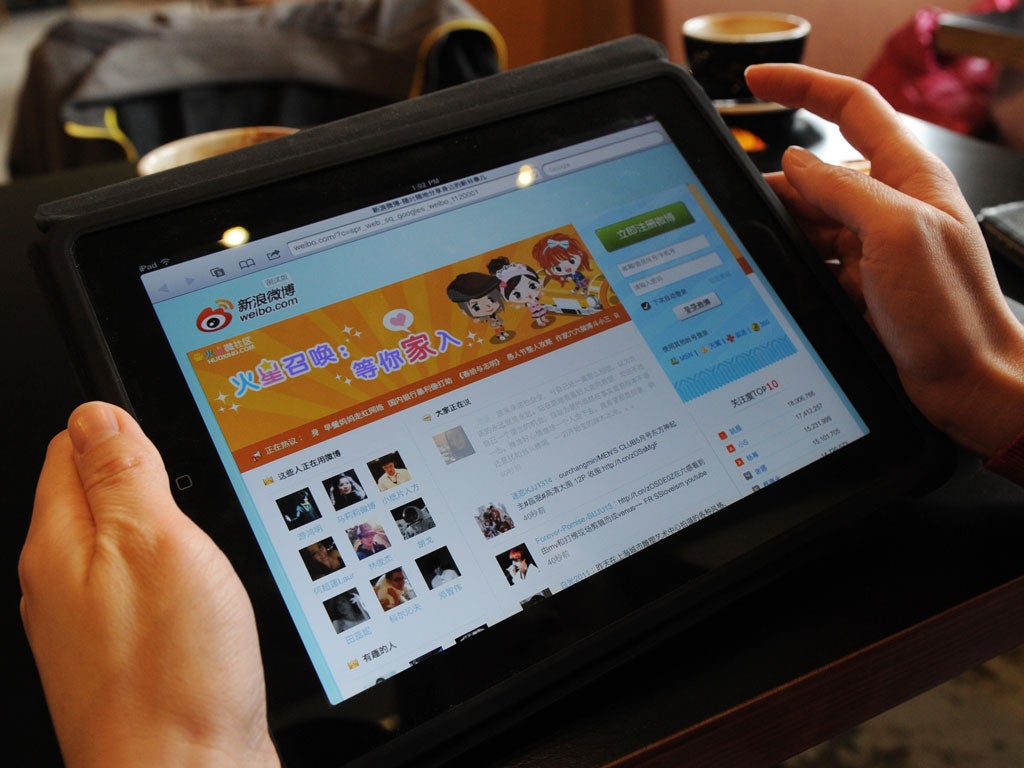Weibo scraps celebrity lists after Chinese state condemns ‘irrational fan’ culture
The Chinese government indirectly criticised Weibo for its promotion of celebrities

A Chinese social media platform has pulled its list of popular celebrities after the state’s media claimed that children are being corrupted by those who capitalise on the entertainment industry.
Weibo, which is China’s version of Twitter, said on Friday that it will be pulling its list of music and media stars that are ranked by their numbers of followers and posts on the network.
It came after the state-owned newspaper People’s Daily had published an editorial criticising platforms that prioritise their online traffic over the interests of young people, according to the Reuters news agency.
The newspaper said that online platforms should “strictly control idol development programmes and strengthen management of talent show programmes” by controlling reviews, voting mechanisms and comments.
Although the editorial did not name any specific social media networks, Weibo said its decision to take down the “Star Power Ranking List” was partly due to the “irrational support” some fans were showing for their favourite celebrities.
The list encourages unhealthy interaction between stars and fans, the company said in the statement.
In May, People’s Daily published an editorial that condemned the “crazy star chasing behavior that makes people gradually lose their minds”.
An English translation of the editorial says: “In particular, many underage fans are not only incapable of earning money, but also immature in their minds. They often fall into the trap of ‘excess consumption’ and ‘borrowing to chase stars’.
“ ... Objectively speaking, out of love, fans are willing to spend their time, money, and energy to build momentum and resources for idols, which is a personal choice.
“But in the logic of some extreme fans, money equals love, and how much you love idols must be reflected in how much money you spend.
“If you spend less money, you will be morally kidnapped and personally attacked as ‘unworthy of love.’ So all the likes and support have become endless brands, endless lists, and endless data.”
The newspaper says that this area of showbusiness is a “multi-party conspiracy to encircle and suppress fans” carried out by “artists, brands, platforms, brokerage teams, etc.”
Popular platforms in China on which fans interact with celebrities also include Bilibili, live-streaming site Kuaishou, and ByteDance-backed app Douyin – which is known everywhere else in the world as TikTok.
Last month, China’s internet watchdog said it had fined Weibo and online platforms operated by e-commerce company Alibaba and gaming firm Tencent for promoting content involving children.
Last month, Weibo, Alibaba’s e-commerce marketplace Taobao, Tencent’s QQ messaging service, Kuaishou, and e-commerce service Xiaohongshu were fined for distributing online “stickers” or short videos involving children in sexually-suggestive poses – the Cyberspace Administration of China said in a statement.
The companies were ordered to rectify the issue and ban accounts that use content involving children to gain more traffic.
People’s Daily, which is the mouthpiece of the government run by the Chinese Communist Party, has also published several editorials calling for crackdowns on industries such as gaming – which it condemned as “spiritual opium” for teenagers.
The condemnation in the editorials, prompted by reports that children were addicted to video games – with one student saying he had played for eight hours a day – led to investors dumping stocks in the gaming sector.
In a social media post, Tencent said it was introducing measures on how long children can play its online games after “relevant authorities” requested more protection for minors and for companies to carry out their “societal responsibility”.
Tencent has also banned children under 12 from being able to make in-game purchases.
Subscribe to Independent Premium to bookmark this article
Want to bookmark your favourite articles and stories to read or reference later? Start your Independent Premium subscription today.

Join our commenting forum
Join thought-provoking conversations, follow other Independent readers and see their replies